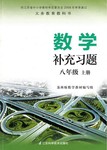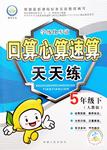
If you look through the Surui reserve (保护区) with Google Earth, you will see a green area in the middle of yellow surroundings. Once, the Paiter-Surui tribe (部落) lived in the heart of the Amazon rainforest in Brazil. But after the tribe met with Westerners years ago, they nearly disappeared: diseases brought by outsiders reduced the Surui’s numbers from 5,000 to about 250.
Today, some 1,300 people live in 23 villages across 600,000 acres (英亩). Though they are wearing T-shirts and jeans, the Surui decide to protect the tribal culture. They are in danger again. Trees are being cut, animals are being killed, and the forest is becoming smaller and smaller. But this time it’s different. The Surui people have put aside their bows and arrows and taken up a new weapon (武器): the Internet.
The idea comes from the leader of the Surui, Chief Almir Narayamoga. “We decided to use computers to bring attention to our situation,” says Narayamoga. The first in his tribe to go to college, he learned how to use computers.
The chief asked about the possibility of making a map of the Surui reserve using Google Earth. An online tour of the reserve, he believed, would help protect the Surui by showing the world the results of cutting trees and the attacks (进攻) on tribal land. It would also tell the government about their situation. This way, Narayamoga hoped to raise money to protect the rain forest by planting one million trees. “Training and education is now our kind of war,” he says. “We know we have to do so.”
Narayamoga’s visit to Google was a great success. The Internet search company sent teams to the Amazon to train the Surui in using computers, cameras, and phones to photograph their surroundings, which could be found using GPS and then shown on Google Earth. The Surui have now mapped the whole reserve and recorded the animals and plants of the rainforest within it.
While their work is supported (支持) by some international groups, Narayamoga hopes they can support themselves within ten years, with coffee production and tourism. The great thing about the Surui is that they try to find their own ways to deal with the problems they face.
53. How many people are still living in the tribe today?
A. About 600,000. B. About 5,000. C. About 1,300. D. About 250.
54. What is the greatest danger the Surui face now?
A. They are often attacked. B. The reserve is getting smaller.
C. Their culture is forgotten. D. The rainforest is disappearing.
55. What do the Surui mainly depend on to protect their land?
A. Normal tools in life. B. Scientific knowledge.
C. Help from outside. D. Information technology.
 补充习题江苏系列答案
补充习题江苏系列答案 学练快车道口算心算速算天天练系列答案
学练快车道口算心算速算天天练系列答案科目:初中英语 来源: 题型:阅读理解
WC, toilet, lavatory, bathroom, restroom, john --- English has many ___31___ for the little room we all have to go to every day. Here are some of the words that ___32___ and explanations of their meanings.
Different countries use different words. In the US, in ___33___ home, you will get ___34___ you need to go if you ask where the “bathroom” is. If you are in a shopping mall, you ___35___ ask directions to the “restroom”. US people also use the word “john”, which is named ___36___ the 19th century British inventor of the flush toilet (although he seems to have been called Thomas.).
In Britain the most commonly used words are “toilet” and “bathroom”. But “WC”, which ___37___ for “water closet”, and “lavatory” are also used. A public toilet is a “public convenience”. People ___38___ speak of the “ladies” and “Gents” (you see the words “Ladies” and “Gentlemen” above the ___39___ to public toilets). An older, now rarely used word in Britain is “privy” which is short for “ ___40___ ”.
Australians say “loo” , which is quite popular in the UK ___41___. Canadians use the word “can ”, New Zealanders “bog”, ___42___ South Africans “want to go to the bathroom”.
Where does the word toilet itself ___43___ from? Well, it’s from the French “toilette” ---- to wash ___44___.
People from ___45___ countries also use some humorous words. For example, “ throne” to describe the toilet and “throne room” foe the bathroom.
31. A. words B. names C. places D. titles
32. A. uses B. use C. is used D. are used
33. A. some B. anyone C. someone’s D. somebody
34. A. how B. what C. where D. when
35. A. would B. must C. should D. can
36. A. in B. for C. after D. at
37. A. stands B. writes C. says D. asks
38. A. sometime B. never C. sometimes D. some times
39. A. entries B. exits C. roofs D. walls
40. A. pretty B. private C. plenty D. practice
41. A. what B. which C. who D. whose
42. A. as well B. also C. too D. either
43. A. is B. comes C. come D. change
44. A. me B. yourself C. us D. you
45. A. developing B. developed C. poor D. English-speaking
查看答案和解析>>
湖北省互联网违法和不良信息举报平台 | 网上有害信息举报专区 | 电信诈骗举报专区 | 涉历史虚无主义有害信息举报专区 | 涉企侵权举报专区
违法和不良信息举报电话:027-86699610 举报邮箱:58377363@163.com